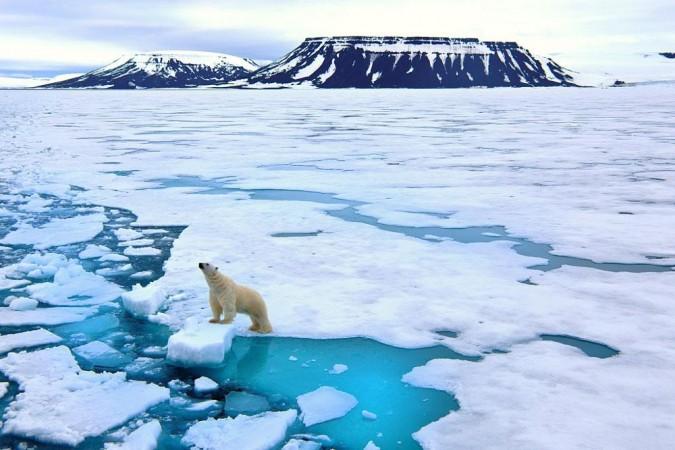India along with its BASIC partners -- Brazil, South Africa and China -- on Monday said a lack of annual climate finance of $100 billion by the developed world would jeopardise the enhanced mitigation and adaptation ambition as well as net-zero pledges by the developing nations.
It also demanded to enhance the finance goal by 2025.

Delivering the statement on behalf of BASIC at the stocktaking plenary of the 26th Conference of the Parties (COP26) meetings in this Scottish city, India Lead Negotiator Richa Sharma said the nations have responded to the ambition gap in mitigation with enhanced Nationally Determined Contributions (NDCs) and net-zero targets.
"Pledges and renewed commitments are on the table. We would not like to see the enhanced mitigation ambition meet the same fate as the pre-2020 climate finance ambition," said Sharma, the Additional Secretary, Environment, Forest and Climate Change.
It has been over a decade since the annual $100 billion pledge, and the world is still waiting for its mobilisation and delivery. "Trust in multilateralism and credibility of the process is at stake. Post-2020 mitigation ambition and net-zero pledges require significantly enhanced climate finance," she said.
"The exact magnitude of the new finance goal can be determined through a structured process, with clear timelines and milestones so that we have a new finance goal well before 2025. It is a simple ask from many developing country parties.
"Yet, what we are getting is more workshops and in session, seminars to discuss the new goal," she stressed.
Issuing a stern warning, she said: "BASIC would like to warn that lack of a serious approach to climate finance will jeopardise the enhanced mitigation and adaptation ambition as well as net-zero pledges of parties.
"In the interest of transparency and enhanced understanding, we also call for a mandate to SCF (Standing Committee on Finance) to work towards multilaterally agreed, operational definition of climate finance."

Favouring support strong, credible domestic mitigation actions by developed countries without undue reliance on cheap offsets to maintain their high carbon, unsustainable lifestyles, she said: "Towards this end, we support markets that are credible and have high environmental integrity and strong non-market approaches as well.
"We hope to achieve agreement on issues of a smooth transition of CDM (Clean Development Mechanism), corresponding adjustments and share of proceeds for adaptation fund."
Sharma said the exact magnitude of the new finance goal could be determined through a structured process, with clear timelines and milestones, so that the nations have a new finance goal well before 2025.
Last Week's Summit
With the last week at Glasgow pivotal for world leaders who are hard at work on climate priorities -- to keep global heating to 1.5 degrees Celsius, as required by the 2015 Paris Agreement, British Prime Minister Boris Johnson has urged countries to keep up the momentum on the fight against climate change at the COP26 summit.
The first week of COP26 under the UK Presidency saw around 120 leaders gather for the World Leaders Summit as well as negotiators, officials and ministers come together to make progress on the shared goal of limiting global temperatures to 1.5 degrees.
Over 100 countries have agreed to cut their emissions of methane by 30 per cent by 2030.
Also, the past week saw new commitments to increase finance to support developing countries to deal with the impacts of climate change and implement ambitious emissions-reductions plans.
With 197 Parties, the United Nations Framework Convention on Climate Change (UNFCCC) has near-universal membership and is the parent treaty of the 2015 Paris Climate Change Agreement.
The main aim of the Paris Agreement is to keep a global average temperature rise this century well below 2 degrees Celsius and to drive efforts to limit the temperature increase even further to 1.5 degrees Celsius above pre-industrial levels.
The UNFCCC is also the parent treaty of the 1997 Kyoto Protocol. The ultimate objective of all agreements under the UNFCCC is to stabilise greenhouse gas concentrations in the atmosphere at a level that will prevent dangerous human interference with the climate system, in a timeframe that allows ecosystems to adapt naturally and enables sustainable development.

















